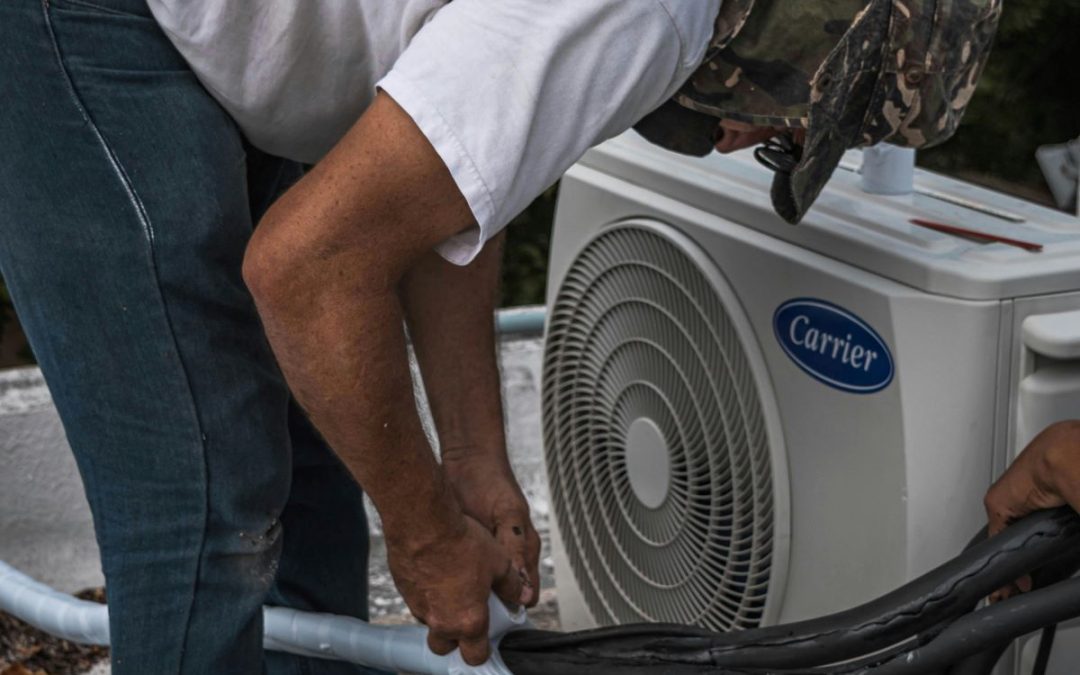Air conditioning systems are a crucial component of home comfort, especially in warm climates like San Diego. As a homeowner, understanding the lifespan of your AC unit can help you plan for maintenance, repairs, and eventual replacement. In this article, we’ll explore the factors that influence an air conditioner’s longevity and provide insights into when you might need to consider a replacement.
Factors Affecting AC Lifespan
Several factors contribute to the lifespan of an air conditioning system:
- Quality of installation
- Frequency of maintenance
- Usage patterns
- Climate and environmental conditions
- Brand and model quality
Quality of Installation
The initial installation of an AC unit plays a significant role in its longevity. A properly installed system is more likely to operate efficiently and encounter fewer issues over time. Professional installation ensures:
- Correct sizing for your home
- Proper refrigerant charge
- Optimal airflow
Average Lifespan of Air Conditioners
On average, a well-maintained air conditioning system can last between 15 to 20 years. However, this can vary depending on the factors mentioned above. Some high-quality units may even exceed this range with proper care.
Signs It’s Time for AC Replacement
As your AC unit ages, you may notice signs indicating it’s time for a replacement:
- Increased energy bills
- Frequent repairs
- Inconsistent cooling
- Strange noises or odors
- Age exceeding 15 years
AC Replacement Cost Considerations
When your air conditioner approaches the end of its lifespan, it’s essential to consider the cost of replacement versus continued repairs. The ac replacement cost can vary significantly based on several factors.
Factors Influencing AC Unit Replacement Cost
The cost to replace ac unit depends on:
- Size of your home
- Energy efficiency rating of the new unit
- Brand and model
- Additional ductwork or modifications needed
While the upfront ac unit replacement cost may seem high, investing in a new, energy-efficient system can lead to long-term savings on energy bills and repair costs.
Components That May Need Replacement
Sometimes, replacing specific components can extend the life of your AC system. However, in older units, the cost of these replacements may approach the cost of a new system.
AC Compressor Replacement Cost
The compressor is often called the “heart” of the air conditioning system. When it fails, the ac compressor replacement cost can be substantial. Factors affecting this cost include:
- Age and model of your AC unit
- Labor costs in your area
- Warranty coverage
AC Motor Cost
Another critical component is the motor. The ac motor cost can vary depending on the type and size of your unit. Replacing the motor might be a cost-effective solution for newer systems, but for older units, it may be more economical to consider a full replacement.
Maximizing Your AC’s Lifespan
To get the most out of your air conditioning system and potentially delay the need for replacement, consider these tips:
- Schedule regular maintenance
- Change filters regularly
- Keep the outdoor unit clean and free of debris
- Use a programmable thermostat to reduce unnecessary operation
- Address minor issues promptly to prevent major breakdowns
The Importance of Professional Maintenance
Regular professional maintenance can significantly extend the life of AC unit. A professional technician can:
- Identify and address potential issues early
- Clean and optimize system components
- Ensure proper refrigerant levels
- Advise on the overall health of your system
When to Choose Repair vs. Replacement
Deciding between repairing your current unit and opting for a full replacement can be challenging. Consider these factors:
- Age of your current system
- Frequency and cost of recent repairs
- Energy efficiency of your current unit vs. newer models
- Your long-term plans for your home
If your AC unit is approaching the end of its expected lifespan and repairs are becoming frequent, it may be more cost-effective in the long run to invest in a new, energy-efficient system.
Conclusion
Understanding the lifespan of your air conditioner and the factors that influence it can help you make informed decisions about maintenance, repairs, and replacement. While the average AC unit lasts 15-20 years, proper care and timely interventions can extend this lifespan. When considering replacement, factor in the ac replacement cost, energy savings, and long-term benefits of a new system.
At Coast 2 Coast Refrigeration, we’re committed to helping San Diego homeowners maintain comfortable and efficient homes. Whether you need maintenance, repairs, or guidance on replacement options, our experienced team is here to help you make the best decision for your home and budget. Contact us today!

